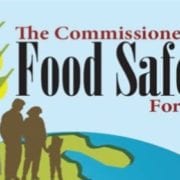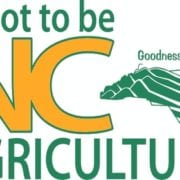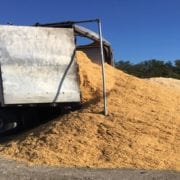Troxler to host Food Safety Forum
RALEIGH – Helping small farms prepare for new federal food safety rules will be among topics covered at the 13th annual Commissioner’s Food Safety Forum on Aug. 15 at the State Fairgrounds.
Agriculture Commissioner Steve Troxler will host the event from 9 a.m. to 12:30 p.m. in the Expo Center. It is open to farmers, food businesses, regulators, health professionals and other interested people. Admission is free and includes lunch, but pre-registration is requested.
To register, go to www.ncagr.gov/ncfoodsafetyforum by Aug. 11. Individuals with questions should contact Derek Wagner at derek.wagner@ncagr.gov or 919-707-3011.
As the federal Food Safety Modernization Act is implemented across the country, farms of all sizes will be subject to on-farm inspections and other food safety rules. Roland McReynolds, executive director of the Carolina Farm Stewardship Association, will talk about the importance of training collaborations for small farms to comply with the rules. And Chuck Ross, extension director with the University of Vermont’s College of Agriculture and Life Science, will give an update on FSMA implementation.
In addition, Dr. Steven Taylor, professor at the University of Nebraska, will talk about incorporating allergen controls within food-processing facilities. Taylor is founder and co-director of the university’s Food Allergy Research & Resource Program. His research has focused on developing methods to detect residues of allergenic foods, and he has worked with numerous companies on a wide range of allergen-related topics.
Other speakers include Dr. Clint Stevenson, assistant professor of food science education at N.C. State University. “Dr. Stevenson and his team have developed virtual reality training sessions that allow students and professionals to interact with virtual representations of real-world food manufacturing facilities and look for food safety problems,” Troxler said. “Stevenson will demonstrate how he brings the factory into the classroom.”
The forum is organized by the N.C. Department of Agriculture and Consumer Services and sponsored by Harris Teeter.




